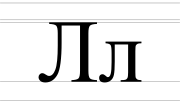The voiced labial–velar approximant is a type of consonantal sound, used in certain spoken languages, including English. It is the sound denoted by the... 19 KB (1,009 words) - 14:46, 20 March 2024 |
 | Voiceless labial–velar fricative (redirect from Voiceless labiovelar approximant) Some linguists posit voiceless approximants distinct from voiceless fricatives. To them, English /ʍ/ is an approximant [w̥], a labialized glottal fricative... 9 KB (804 words) - 00:35, 30 March 2024 |
Look up labiovelar in Wiktionary, the free dictionary. Labiovelar consonant may refer to: Labial–velar consonant such as [k͡p] (a consonant made at two... 521 bytes (107 words) - 07:32, 6 September 2021 |
Semivowel (category Approximant consonants) necessarily a semivowel. Semivowels form a subclass of approximants. Although "semivowel" and "approximant" are sometimes treated as synonymous, most authors... 10 KB (1,102 words) - 16:22, 23 February 2024 |
 | Voiced bilabial fricative (redirect from Bilabial approximant) bilabial approximant is analyzed as filling a phonological gap in the labiovelar series of the consonant system rather than the bilabial series. Proto-Germanic... 23 KB (1,275 words) - 01:07, 11 April 2024 |
can be represented with the symbols for the palatal approximant [j] and the labiovelar approximant [w], with the symbols for the close vowels [i] and [u]... 71 KB (6,309 words) - 18:35, 19 April 2024 |
voiceless [ʍ] from voiced [w]; see wine–whine merger and voiceless labiovelar approximant. Marginal in most accents, and otherwise merged with /k/, see Lock–loch... 66 KB (1,824 words) - 17:10, 19 April 2024 |
is a labiovelar approximant before back vowels (in the northernmost dialects also before front vowels), whereas it is a Labiodental approximant in Standard... 31 KB (3,527 words) - 11:02, 3 July 2023 |


